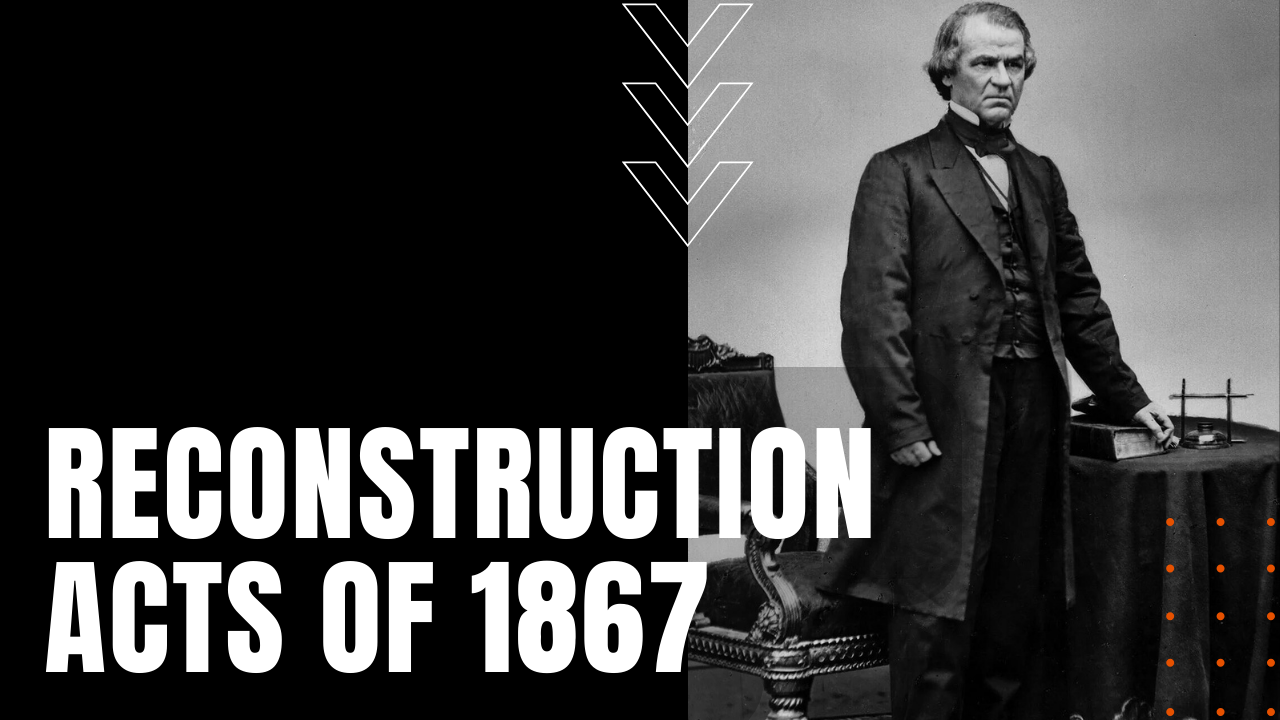The Reconstruction Acts of 1867

After President Abraham Lincoln’s assassination on April 15th, 1865, less than a week after the end of the American Civil War, incoming President Andrew Johnson instituted his weak form of Presidential Reconstruction on the defeated Southern states, reflecting both his staunch Unionism and his overriding belief in states’ rights. Despite the congressional passage of the Freedmen’s Bureau and the 13th Amendment in 1865, Johnson’s adherence to states’ rights allowed southern state governments to rebuild themselves without federal oversight, leading to a series of Jim Crow laws known as black codes that further enforced the practice of racial segregation, at the same time insuring that freed blacks would fill the post-slavery labor vacuum with a new economy known as sharecropping.
Northern Outrage
In response, outraged northerners through their congressional representatives refused to reseat southern legislators, and when Johnson vetoed passage of the Freedmen’s Bureau and Civil Rights Bills, his action caused a permanent rift in his relationship with Congress, eventually leading to his impeachment in early 1868. Johnson’s vetoes and inaction also inspired Radical Republicans in Congress to take firm control over the issue of Reconstruction in the South, passing the Reconstruction Acts of 1867, which temporarily divided the South into five military zones, while outlining how southern officials would be elected to office based on universal male suffrage.
Requirements for Re-entry
The laws also insisted that southern states ratify the 14th and 15th Amendments to the U.S. Constitution, which further defined citizenship and voting rights to formerly enslaved people. During Radical Reconstruction, southern blacks experienced a brief period of progressive rights within the post-antebellum South, participating in public life like never before, including black politicians elected to the U.S. Congress. Other achievements included the South’s first state-funded public school systems, equitable tax legislation and ambitious economic reforms and development programs, at the same time witnessing the birth of white hate groups such as the Ku Klux Klan.
A Political End
Radical Reconstruction ended during the election cycle of 1876, when Republican presidential candidate Rutherford B. Hayes was handed the White House in exchange for an end to Reconstruction in the South, making the Reconstruction Acts of 1867, a transitory yet doomed new hope for African Americans in the South.
